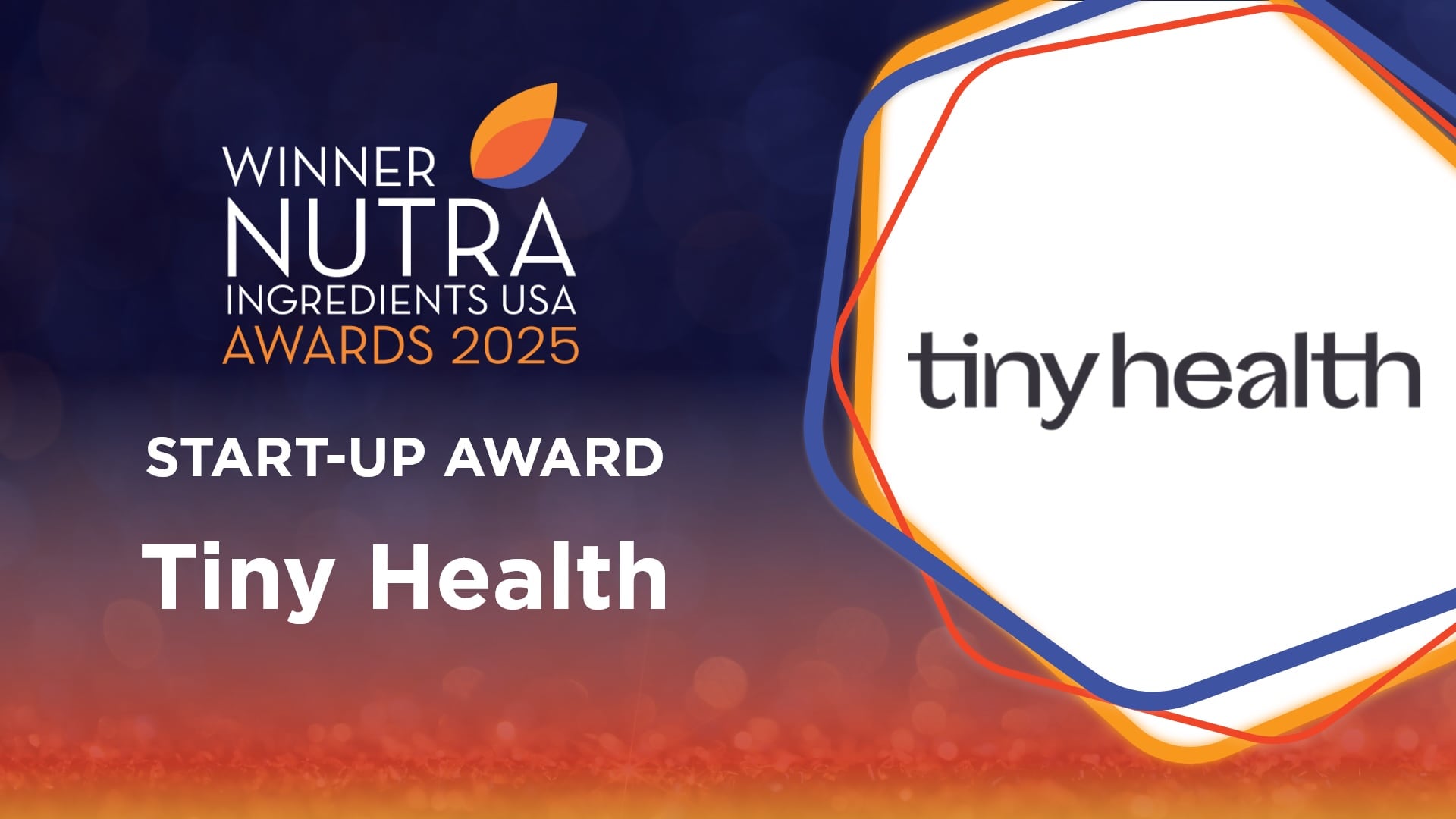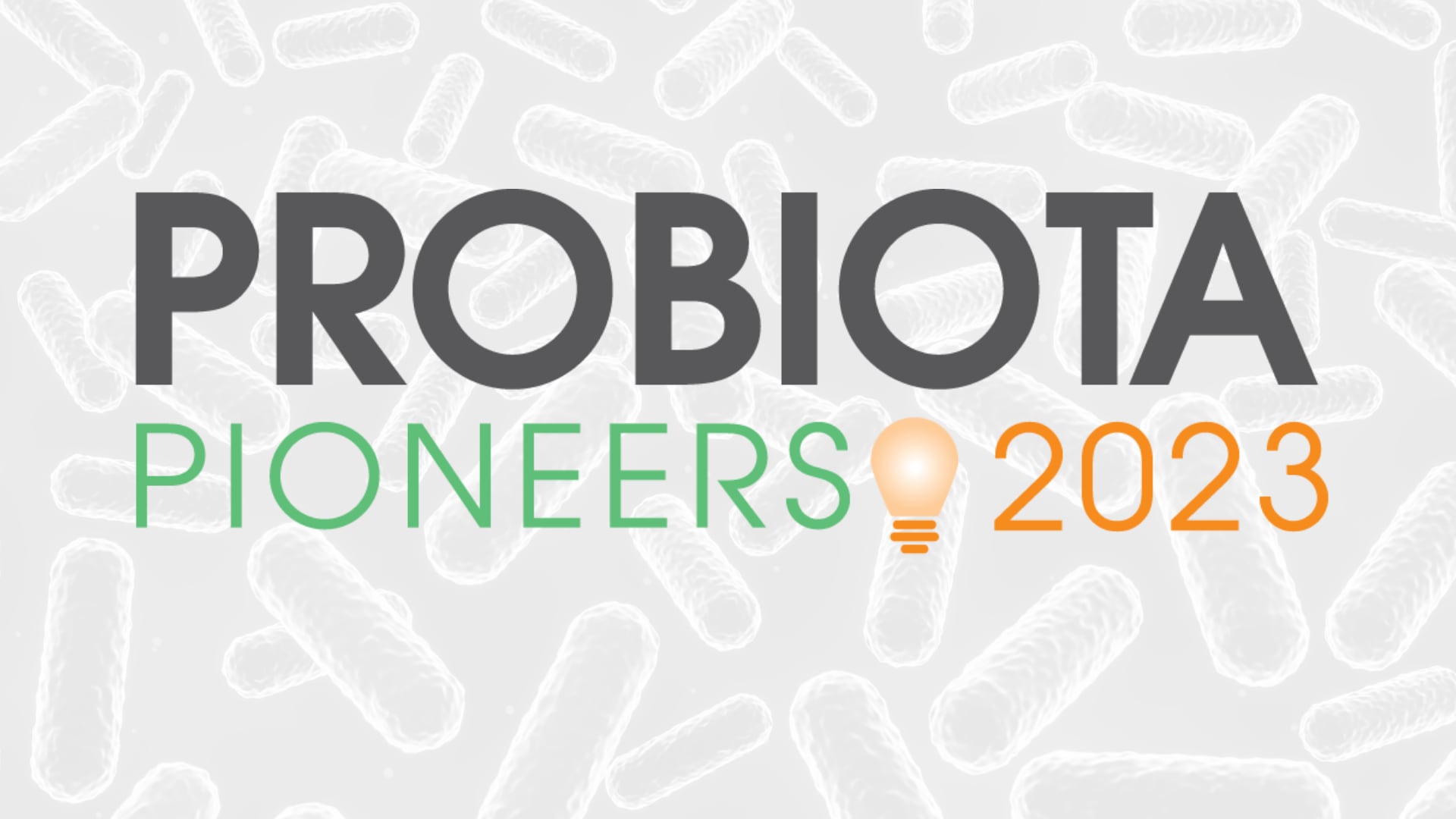Founded by Cheryl Sew Hoy in 2022, the company was the first microbiome platform to address infant gut imbalances and help parents track their child’s microbiome maturation during the critical first 1,000 days of life. It has since expanded its research and testing across ages and populations to support family health and lighten the burden on the healthcare system.
“We’re incredibly honored to receive the Start-Up Award from NutraIngredients-USA,” Sew Hoy shared following the July 14 awards ceremony held in Chicago. “This recognition affirms the work we’ve done to empower families to build lifelong health—starting from the first 1,000 days and now extending to the last 1,000 days."
The birth of Tiny Health
The concept for Tiny Health emerged from personal experience. After giving birth to her first baby by C-section and second by vaginal delivery, Sew Hoy delved into microbiome research to explore potential explanations and remedies for her first child’s mild eczema and sesame allergy. This led her to identify a gap in microbiome testing and develop tools to help parents track their child’s microbiome recovery.
“The first 1,000 days of life, from conception until about two years old, represent a crucial window that influences a child’s lifelong health, with the gut microbiome at the core of this period of immune development,” Sew Hoy previously told NutraIngredients.
“During the first years of life, the gut microbiome is a dynamic, rapidly changing microbial community. Microbial colonization of the gut starts at birth, when the baby is exposed to vaginal or environmental microbes, and microbes from mom’s breastmilk and skin.”
Tiny Health gathered a team of leading scientists, physicians and microbiologists who spent over a year researching the published science on the infant gut microbiome, its association with chronic conditions and specific strategies for gut health course correction.
Ongoing analysis of publicly available gut microbiome data continues to expand a growing library of age- and condition- specific reference measures used to inform results returned from the tens of thousands of test kits sold to parents to date.
Kits are processed using shotgun metagenomic sequencing, the gold standard in microbiome analysis, to provide insights into how gut and vaginal microbes influence digestion, immunity and long-term health. Analysis and reporting are supported by a proprietary bioinformatics pipeline and a microbial database of over 120,000 genomes.
“We deliver comprehensive microbiome reports that analyze gut microbiome composition and functionality of each person, any microbial biomarkers or signatures associated with disease risk from our highly curated association panel and actionable recommendations that can empower parents and improve gut health,” Sew Hoy said.
Recommendations include targeted probiotics, prebiotic-rich foods and supplement choices to address specific signatures detected—for example, microbiome imbalances following C-section delivery or antibiotic treatment.

Commercial traction and impact
In the three years since launch, Tiny Health has continued to add function, funding and science to its platform.
In addition to its microbiome tests, the company’s toolkit has evolved to include probiotic strain tracking to evaluate if probiotics consumed are present and active in the gut, as well as the more recent Gut Maturation Index that predicts a child’s gut microbiome age with one-to-two month accuracy up to age three.
“The ability to predict a child’s microbiome age and map it to their true age is a groundbreaking advancement,” Sew Hoy said of the launch. “This innovation offers a new way to support gut development during a formative stage in a child’s life.”
The company has just launched its Microbiome Age Research Edition for people 60 and older and introduced new metrics tied to mitochondrial health like Urolithin A, GABA production for mental health, biomarkers for menopause and cardiovascular health, and soon, GLP-1 production in the gut.
“We’re also expanding our footprint through upcoming partnerships with a major hospital system, top longevity clinics, health assessment and menopause companies and wellness retreats,” Sew Hoy said. “This is just the beginning of our mission to transform gut health across every stage of life.”
This market momentum is supported by a recent Series A funding round that brings the company’s total raise to $13 million. It is being channeled into additional analytic tools, outreach efforts and research initiatives on different seeding stages and outcomes.
“By focusing on the critical first 1,000 days of life and using strain-level analysis, the company is pioneering health optimization in an underserved and complex category,” the NutraIngredients judges noted. “With a strong scientific foundation, clear mission and notable commercial traction, Tiny Health is well-positioned to make a meaningful, long-term impact.”



